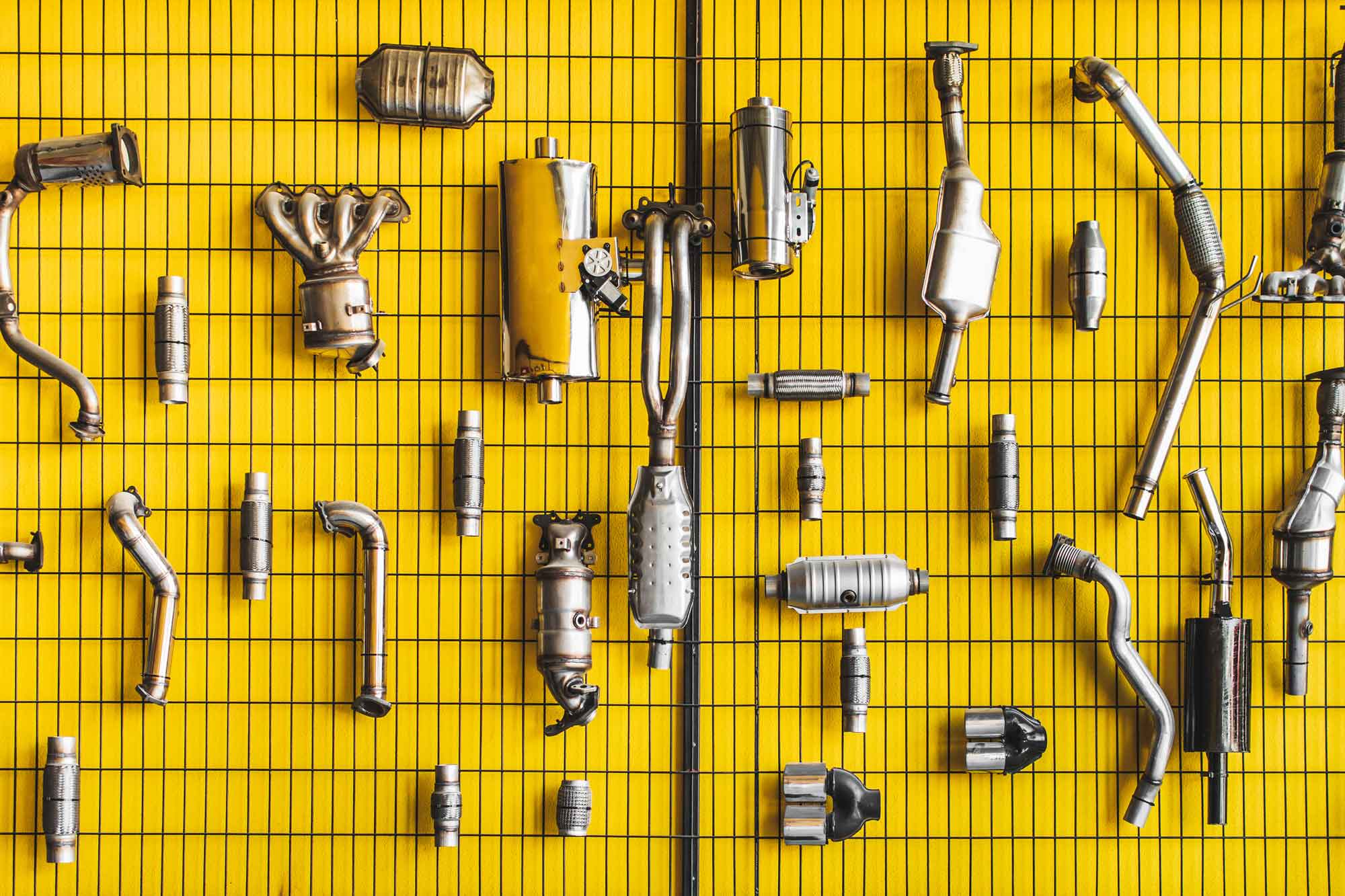How to Dispose of Car Parts
Here's what you're supposed to do with used tires, dead lead-acid batteries, and more.
 Getty Images
Getty Images
You may be aware of what can and cannot go in your curbside bins. And if you're dedicated to limiting waste, you likely know all about textile recycling, composting, and electronics recycling. If getting rid of automotive parts is not in your sustainability wheelhouse, however, here is how to properly dispose of that pile of wiper blades or stack of old tires.
How to Dispose of Tires
It may be tempting to take your old tires to the dump, but that's not the best idea. It's illegal in many states, as tires that sit in a landfill may trap methane and pose a fire risk. They also tend to collect water, making them a haven for rodents and mosquitoes. Instead, if you're having new tires installed, ask the service staff at the auto shop or the dealership if they will dispose of the tires for you.
Some companies like Zohr have mobile tire services and will take away your used tires for recycling. This can save you time and effort compared to going to a store to drop them off.Otherwise, check out Earth911's
How to Dispose of Batteries
Just as tires shouldn't end up in a landfill, neither should batteries. They contain hazardous chemicals such as lead and sulfuric acid, which may leak from the battery and contaminate the environment. What's more, those materials are still worth something, and auto-parts stores will typically pay you for them. Just show up at your local AutoZone with a dead battery and you'll receive a gift card for your troubles.
How to Dispose of Motor Oil and Filters
Only a few quarts of used motor oil are enough to ruin millions of gallons of drinking water if poured down the drain. If you like to service your car yourself, make sure to collect all used oil in a leak-proof container and take it to a store such as O'Reilly Auto Parts, which will recycle it for free. They can also help recycle for oil filters, which contain reusable steel.
How to Dispose of Brake Pads
While it's not great for the environment, throwing brake pads in the trash is the popular route for disposal. If you're into do-it-yourself projects, check out videos on how to upcycle old brake pads into something useful, such as an oil-filter wrench.
Some older brake pads can contain asbestos, and are considered hazardous waste. If you're unsure about their composition, it's best to contact your local waste-management facility. Otherwise, used brake pads can be disposed of with your other garbage.
How to Dispose of Wiper Blades
Wiper blades can also go in the bin. However, you can pull the metal and rubber pieces apart and donate them to a recycling facility.
How to Dispose of Car Light Bulbs
If your ride uses halogen, incandescent, or LED lights, you can toss the dead bulbs in the trash. Those with HID lamps require extra precautions, as they contain mercury. That may also be the case for older xenon lights. In those cases, you can take the bulbs to a recycling center, as you do with fluorescent tubes.
Written by humans.
Edited by humans.
 Lindsay Martell
Lindsay MartellLindsay Martell is a Charlotte, NC-based journalist, copywriter, and voiceover artist. She writes about everything from automotive tech to adult ballet to competitive cheerleading. Her work has appeared nationally across various automotive and entertainment outlets. Her skills are turning complex tech terms into simple, palatable pieces of information. She has covered technology since 2000, and thrives on covering innovative tech trends.
Related articles
View more related articles